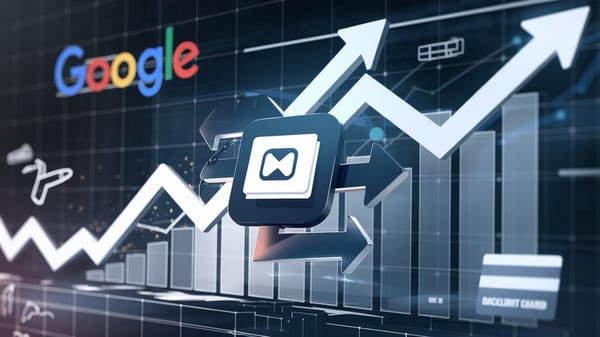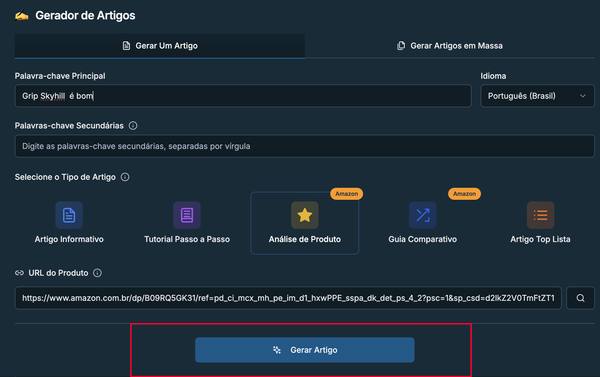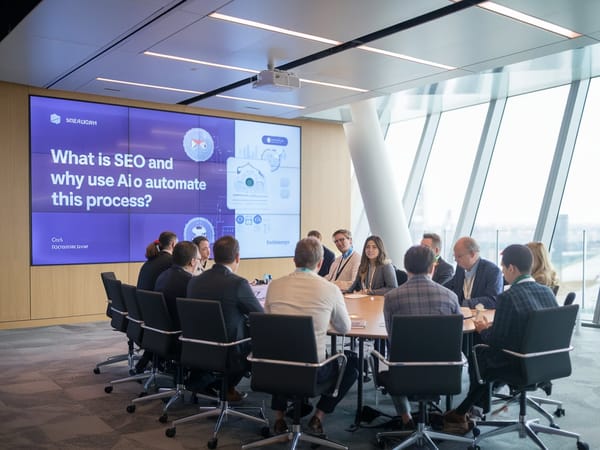What is SEO and Why Use AI to Automate This Process? 🧠
Discover what SEO is and how to use AI to automate processes, gain efficiency, and scale results. 🚀 Explore top tools and trends for 2024! 🔍
If you're an SEO specialist, you know that optimizing a website for search engines is an ongoing, detailed process. With each algorithm update, new rules and best practices emerge, making it a dynamic and challenging pursuit to achieve high rankings. In this scenario, automation through Artificial Intelligence (AI) becomes a powerful ally, streamlining and speeding up the work. But what exactly is SEO, and how can AI be used to automate processes and improve results?
In this article, we will explore the concept of SEO, its core practices, and, of course, how you can integrate AI to optimize your work and scale your strategies more efficiently.
What is SEO? A Brief Overview for Specialists
SEO, or Search Engine Optimization, is the set of practices and techniques applied to improve a website's visibility in the organic search results of engines like Google. As a specialist, you're likely familiar with the factors that influence SEO, such as keyword selection, content optimization, user experience, and backlink acquisition.
The main goal of SEO is to ensure that your site's relevant content can be easily found by your target audience. Through continuous and well-executed efforts, the results can be significant: increased organic traffic, greater market authority, and growing conversions. However, for this to happen, it's essential to keep up with frequent algorithm updates and adjust strategies accordingly.
With the exponential growth of data and complexity in the digital landscape, specialists must manage a large volume of manual tasks, which can become time-consuming and error-prone. This is where AI steps in to optimize these processes.
The Core Pillars of SEO: On-page, Off-page, and Technical
When discussing SEO, it's important to remember that it can be divided into three main pillars: On-page SEO, Off-page SEO, and Technical SEO. Each has its own specific role in a successful strategy, and mastering all three is crucial.
On-page SEO
On-page SEO involves all optimization actions you take directly on your site. This includes using keywords correctly, creating high-quality content, optimizing meta tags (titles and descriptions), building friendly URLs, and optimizing images. Well-structured content and a positive user experience are fundamental aspects of this pillar.
Off-page SEO
Off-page SEO involves actions taken outside your website, primarily related to building quality backlinks. External links from trusted sites are one of the key indicators to search engines that your site holds authority on a subject. However, acquiring quality backlinks requires time and a solid outreach strategy.
Technical SEO
Lastly, Technical SEO focuses on your site's infrastructure, such as load speed, security (use of HTTPS), structured data, and good internal link architecture. It also involves optimizations that facilitate your site's crawlability, such as creating a sitemap and fixing crawl errors.
Balancing these three pillars is what makes an SEO strategy truly effective. With the advancement of AI, many of these tasks can be automated, freeing up time for specialists to focus on more analytical strategies.
Why Automate SEO Processes with AI?
The reality is that SEO optimization involves a significant number of repetitive and time-consuming tasks. From keyword analysis to technical audits and performance reports, many of these activities can be optimized — or even fully automated — with AI.
Benefits of AI in SEO
- Speed and efficiency: AI can process large volumes of data in a fraction of the time it would take a human. AI tools can audit thousands of pages, detect technical issues, and even suggest keyword or content structure improvements.
- Continuous optimization: With AI, it's possible to automate frequent checks on your site and ensure your SEO remains up to date with best practices.
- Data accuracy: AI software can identify patterns and trends in complex data, helping predict behaviors and adapt SEO strategies based on those predictions.
- Content automation: AI can also be used to create drafts of SEO-optimized content by analyzing the best practices of competitors who are ranking well.
AI Tools Already Transforming SEO
Several tools are already revolutionizing the way we approach SEO. Here are some of the most popular ones:
- SEMrush: One of the most comprehensive software solutions, using AI to help across all fronts of SEO, from competitor analysis to backlink optimization.
- Ahrefs: Popular among specialists, Ahrefs uses AI to track backlinks, analyze competitors, and provide detailed keyword insights.
- SurferSEO: Focused on content optimization, it uses AI to compare the performance of well-ranked content and suggests improvements based on those parameters.
- Jasper AI: A content creation tool that uses AI to generate optimized texts and enhance the production of articles and blog posts.
These tools offer a range of advanced features that automate tasks previously done manually, making SEO more precise and efficient.
AI and SEO in 2024: Trends and the Future of Automation
SEO is constantly evolving, and with the rapid adoption of AI, the future is filled with new opportunities and challenges. Looking to 2024 and beyond, trends suggest that AI will play an even greater role, reshaping how specialists approach SEO.
- Predictive analysis: AI tools can predict changes in search engine algorithms and adjust strategies before impacts are felt.
- Advanced automation: Tasks that were once manual, such as content creation or backlink monitoring, will become increasingly automated.
- Voice search and conversational AI: Optimizing sites for voice search (like virtual assistants) will be a growing field, especially with advancements in natural language AI.
These trends indicate that AI not only simplifies SEO but also opens up new frontiers for those looking to stand out in the market.
Is Automated SEO for Everyone?
Despite the clear benefits, automating SEO with AI may not be the best solution for everyone. Companies with large volumes of data and repetitive tasks benefit greatly from automation, but there are still situations where human intervention is crucial.
- AI limitations: As advanced as AI is, it cannot yet replicate human creativity and strategic thinking. Deep understanding of audiences, cultural nuances, and unique content creation are areas where specialists will always play a vital role.
- Integration with expert knowledge: The ideal approach is to use AI as an ally to optimize processes, while focusing on more complex strategies and creating authentic brand presence.
Conclusion
SEO remains an essential strategy for ensuring website visibility in search results. However, the amount of manual work involved can be a barrier for specialists looking to optimize time and maximize results. AI, in this sense, emerges as a powerful tool to automate processes and provide faster, more accurate insights.
While AI is already transforming SEO, the combination of automation and human expertise is the ideal path to make the most of both worlds. In the future, those who can master these tools and integrate them strategically will gain a significant competitive advantage.
FAQ
- What is automated SEO?
Automated SEO uses AI tools to perform repetitive tasks, such as keyword analysis and technical audits, automatically. - Which SEO tasks can AI handle?
AI can perform tasks ranging from keyword and backlink analysis to content creation and detailed performance reports. - Do AI tools replace the work of an SEO specialist?
No, they complement it. AI automates operational tasks, but strategic and creative planning still depends on human expertise. - How can AI improve keyword analysis?
AI can analyze large volumes of data and identify search trends more precisely, suggesting keywords with higher potential. - Can technical SEO audits be automated with AI?
Yes, AI tools can perform automatic technical audits, detecting issues like site structure, broken links, and load speed. - AI and technical SEO: are there adequate tools?
Yes, tools like Ahrefs and SEMrush offer advanced features for automated technical optimization. - Can using AI harm my Google rankings?
No, as long as it’s used correctly. AI should be an ally to improve SEO practices while always adhering to Google’s quality guidelines.


